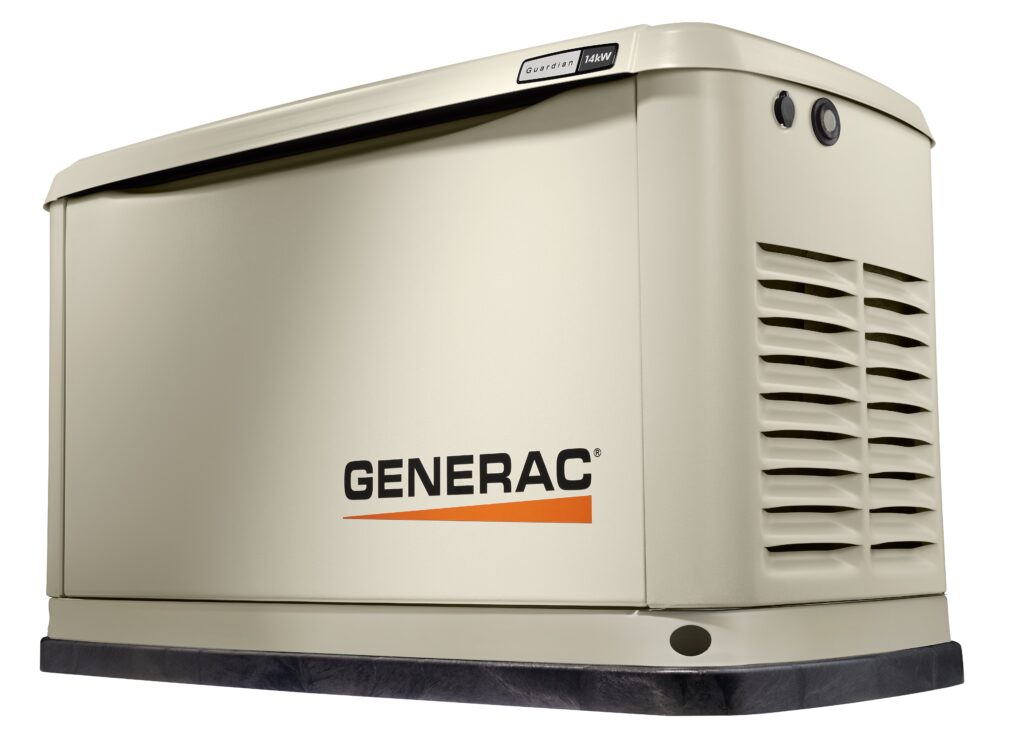Solar energy has been a game-changer in the quest for sustainable power, but as more homeowners and businesses embrace solar panels a crucial question arises: how do you keep the lights on when it is dark outside? And if the answer is “with a battery,” the follow up question becomes will solar batteries really work and are they worth the investment? The short answer is a resounding yes. Let’s delve into why investing in solar batteries can be one of the smartest decisions you make for both your wallet and the planet and prove that solar batteries are worth it!
Maximizing Your Solar Investment
One of the most compelling reasons to invest in solar batteries is their ability to help you get the most out of your solar panels. Without a battery, excess energy produced during sunny periods is often sent back to the grid, most of the time at a reduced rate. By installing a solar battery, you can store this excess energy and use it when the sun isn’t shining, such as during the night or on cloudy days. This means you’re not only making full use of the energy you generate but also reducing your reliance on the grid.
Further, if you compare it with the idea of a fossil fuel generator, read on to the section where we compare the two possible backup options.

Reducing Energy Bills
To start, solar batteries can lower your energy bills by allowing you to use stored energy instead of grid power. The savings can come in a few ways. For most people in New England there are savings to be had because excess power pushed back to the grid, meaning net meter electricity, does not get you the full retail price of the power you will buy from the grid when the sun isn’t shining. In most cases in New England, it is not a large “haircut,” but over time it can add up. Worse still, there is a new billing “model” on the horizon here in New England that will make a battery’s value in this type of scenario much greater.
As background, here in most of New England today you are charged the same amount for each kW hour of electricity you pull from the grid regardless of the time of day. But that billing model is expected to change. Instead, more utilities are expected to adopt a time-of-use (TOU) pricing model. Time-of-use means the price of electricity that you get from the grid will vary depending on the time of day (this is quite common in other states, for example California). In one example here in New England, in Groton MA, the town’s utility is now offering a time-of-use rate structure as an option. In it, the price of power for most of the day is 7 cents per kW hour, but between the hours of 4 PM and 8 PM the cost jumps to 43 cents per kW hour. That is a substantial difference. However, if you have a battery, you can draw from your stored energy during these expensive peak periods.
Regardless, over time, this “self-use” type of savings is part of the way you can offset the initial investment in the battery.
Solar Battery and Backup Power
While avoiding low net metering rates or high time of use electricity rates, your solar battery can also act as a source for backup power. In short, energy independence is a key advantage of solar batteries. By storing energy at home, you reduce your reliance on the grid and become less vulnerable to power outages and fluctuations in energy prices. In regions with unreliable grid infrastructure or frequent power cuts, having a solar battery ensures you have a reliable source of electricity. This can be particularly valuable during emergencies or natural disasters, providing you with peace of mind and security.
Increasing Property Value
Investing in solar batteries can also increase the value of your property. As more buyers look for energy-efficient and sustainable features in their homes, having a solar battery system can make your property more attractive. Studies have shown that homes with solar panels and energy storage systems often sell for a premium compared to those without. This can be a significant benefit if you ever decide to sell your home.
Contributing to a Sustainable Future
By investing in solar batteries, you are contributing to a more sustainable and eco-friendly future. Solar batteries allow you to maximize the use of clean, renewable energy, reducing your overall carbon footprint. As the world moves towards more sustainable energy solutions, having a solar battery system demonstrates your commitment to environmental responsibility and can inspire others to consider similar investments.
Taking Advantage of Technological Advancements
Solar battery technology has advanced rapidly in recent years, resulting in more efficient, reliable, and affordable options. Modern batteries offer longer lifespans, higher energy densities, and better performance, making them a more attractive investment than ever before. With ongoing innovations and decreasing costs, the return on investment for solar batteries continues to improve, making now an excellent time to consider adding one to your solar setup.
Comparing Solar Batteries to Generators
When considering the value of solar batteries, many people first think about their role in providing backup power. To understand their benefits, it’s useful to compare them with an alternative like a backup generator. Both solar batteries and generators can supply power during outages, but they differ in terms of initial cost, ongoing expenses, functionality, and environmental impact.
Initial Costs:
- Solar Batteries: The upfront cost of solar batteries can range from $20,000 to $25,000 or more depending on the capacity and brand. This includes the price of the battery itself and the installation. However, with incentives, rebates, and tax credits, the net cost can dramatically reduce. Further details on potential incentives can be found under the “Leveraging Incentives and Rebates” section below.

- Generators: Automatic backup generators typically range from $12,000 to $18,000, with larger, more powerful models costing even more. While the initial cost may be lower than that of a solar battery system, generators require annual service (much like a traditional car) and of course fossil fuel. Conversely, a solar battery can recharge itself from the sun.
Operational Costs:
- Solar Batteries: Once installed, solar batteries incur minimal if any ongoing costs. As noted, they do not require fossil fuel (the sun is free), need minimal maintenance, are nearly silent, and take over in an outage almost instantly.
- Generators: Generators, however, require regular maintenance and ongoing fuel costs. Depending on their design, you may need to purchase gasoline, propane, or diesel, which can add up over time. When blackouts last for multiple days getting such fuels can suddenly become difficult. Maintenance includes oil changes, filter replacements, and other upkeep to ensure reliable performance. Basic maintenance typically runs approximately $600 or so dollars per year.
Environmental Impact:
- Solar Batteries: Solar batteries are a clean energy solution that enhances the sustainability of your solar system. They contribute to reducing greenhouse gas emissions and support the use of renewable energy. They are also silent, which light sleepers deeply appreciate.
- Generators: Traditional generators rely on fossil fuels, which emit carbon dioxide and other pollutants. This not only impacts the environment but also contributes to noise pollution as even the quietest generators run around 50 decibels and generally emit more like 100.
Functionality and Convenience:
- Solar Batteries: Solar batteries offer seamless integration with your solar panels and can automatically provide power when needed. They are designed to be low-maintenance and efficient, with the added benefit of supporting your energy needs during outages or low production periods. Further, when the power goes out the switch over to battery power is pretty much instantaneous. For most people, their electrical clocks don’t even have to be reset. In fact, without the phone apt telling them the power went out they may not even know it. The one drawback for some people is that backing up everything in your house may require multiple batteries. In those cases, installing more is not a problem, but more expensive. So, some people opt to install a “sub panel” so that unneeded appliances don’t eat up your batteries reserve before the sun returns to keep your house running.
- Generators: While generators can provide immediate power during outages, they take a minute or so to start up (even when automatic). They also generate noise and emissions, which can be disruptive. One customer reported that they only knew they had lost power when their neighbor’s generator woke them up.
Leveraging Incentives and Rebates
Many regions offer financial incentives, rebates, or tax credits that can significantly reduce the upfront cost of installing a solar battery system. Additionally, numerous utilities offer “Demand Response” programs, such as Massachusetts’s “Connected Solutions.” These programs allow utility companies to control your battery during peak demand periods, such as sweltering summer evenings. In return, the utility pays you each summer, helping to offset the cost of the battery system. Such incentives can make a substantial impact on the overall investment, often covering a sizable portion of the battery’s expense.
A Word About Fire Risk
It is true that batteries have been a source of fires, an issue that has been particularly bad in places like New York city. However, in most cases cited in NY, the sources were low cost and poorly designed batteries for scooters and other similar systems. And still more concerning, the cause has often been traced back to a consumer’s using the wrong charger with the battery, which resulted in overheating and run-away combustion. Conversely, the solar batteries we are discussing here are fully integrated systems that pass UL 9540A, which is an extremely stringent and exhaustive national test, So for the simplest example, there is no way to charge your solar battery with the wrong equipment because it is all totally integrated and it has been tested in a multitude of ways. However, all that said, you should always feel free to ask any prospective installer for the manufacturer’s details on a battery’s safety tests and their installation guidelines, so you can be sure that everything will be installed according to the manufacturer’s specifications as well as local fire code.
Conclusion
Solar batteries are more than just a supplementary addition to your solar system—they are a smart investment that can enhance the efficiency, reliability, and value of your energy setup. They are, in short, a major step forward in making solar the energy of the future. From reducing energy bills and increasing property value to contributing to a sustainable future and leveraging technological advancements, the benefits of solar batteries are clear.
When compared to backup generators, solar batteries offer long-term cost savings, lower environmental impact, and greater convenience. If you are considering adding a solar battery to your home or business, consulting with a solar energy professional can help you understand how these systems can best meet your needs. With the right guidance, you can make an informed decision and reap the rewards of a well-planned solar energy investment.
In the end, solar batteries are not just worth the investment; they are a forward-thinking choice that aligns with both economic and environmental goals. As the world continues to embrace renewable energy, solar batteries stand out as a key component in maximizing the potential of solar power and securing a sustainable future. Contact us today to discover how we can assist you in integrating solar batteries into your energy strategy!
If you liked this article, you may also like:
Introduction to Solar Carports & Pergolas: What Are They and How Do They Work?




